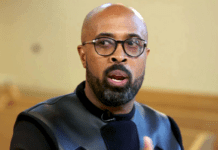Conceding that he is someone who regularly attends church services in person, Medley then argued that Christians take the word “church,” which means “assembly,” too literalistically.
“The earliest reference to that is from the 2nd and 3rd century among the Apologists. The term ἐκκλησία [ekklesia] does not mean ‘gathering.’ Rather, it is a somewhat formal and VERY political term that was established in the use closer to ‘Assembly,’” Medley said. “The use in religious contexts seems to have first occurred in the LXX (Septuagint). Here, though, it also seems to have clearly meant a formal legal/political Assembly. It’s (sic) most frequent use, and likely why it was adopted by the NT authors, has this political connection.”
“So, the term that we translate [as] Church should focus more on the active ruling/enacting/governing of the Kingdom of God on earth. That should include the gathering together on Sunday, but that is not the primary goal,” Medley continued. “To dismiss online community because it violates this (beneficial, but still secondary) function by calling it ‘not church’ is insulting, ridiculous, isolating to already isolated people, and out of step with the greater message of Scripture.”
RELATED: Online Church Events Are Here to Stay — 3 Keys to Success
Others were less concerned with making purely theological arguments but were instead troubled by how Wilson’s words may be received by those who are disabled or otherwise unable to attend an in-person gathering.
“Thanks for reminding disabled people yet again that evangelical pastors hate them. Nobody has fought harder through the legislative process than American Christians to actively close the door on disabled people,” said special education advocate Anna Caudill.
In response to this criticism, Baptist pastor Nathan Rose sarcastically said, “To speak my truth, I feel in my feelings that a church is whatever I feel that it is and I know it’s true because my heart tells me so. Also, why does Jared hate the elderly?”
While a mere Twitter thread surely cannot create consensus on a complex theological and practical network of issues, this conversation does reveal the differing ways that American Christians feel about online technology.
To some, online community is a necessary evil in the modern age—better than nothing but not accounting for much spiritual benefit. To others, online community is seen as the very catalyst for even greater spiritual benefit than a purely in-person approach to discipleship.
This article has been updated to reflect Jared C. Wilson’s additional tweets regarding virtual church.











